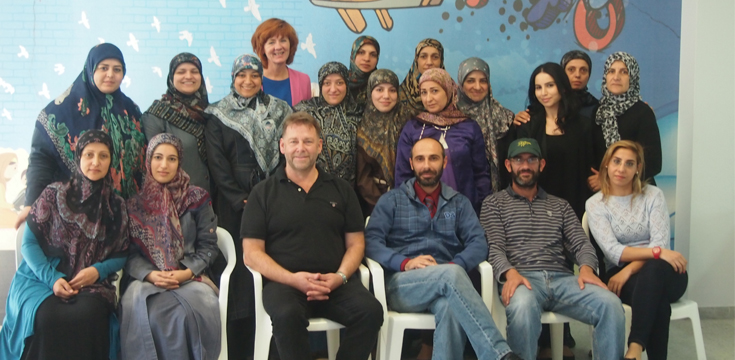Mental Health
What is it?
The Mental Health Curriculum is to qualify workers to identify mental disorders and avail mental health services in rural communities, mainly at primary health care settings.
Why?
Many of us neglect that violence begin in the mind of people. Tranquility should be built first in their minds. Promoting the mental health in a traditional culture is not only a promising adventure, but also innovative in terms of human rights, dignity and prosperity. Many activists advocate the intercultural dimension between nations; few give particular attention to the prerequisite; i.e. the intra-cultural within communities.
Who will benefit? War, displacement and poverty are heavy burdens for people to deal with, both practically and psychologically. Living in an unstable region, is dealing with these stressful situations more often than others. In the socio-medical centers of ISF in the South, this type of burden is omnipresent. The effects are also visible in the schools, in the behavior of the children, easily distracted and hyperactive, and in the relationships with their parents, proving lack of involvement. This situation was aggravated by the absence of systematic psychological support, a quasi inexistent service in the area. The curriculum is meant to respond to those needs.
What happened so far?
It has now been running for 3 groups of students have been graduated (45 graduates). They are now integrating mental health dimension within their daily work at the primary health settings and elsewhere. In designing the program we have been inspired from Mental Health Nursing Curriculum both in construction, syllabus, learning outcomes, teaching/learning strategies and assessment methods (WHO Regional Office for Europe 2003).Since this is a pioneering work, as mental health facilities hardly exist, we have to establish the curriculum and simultaneously train professionals in the field of mental health. The initial curriculum consists of eight modules, given in 600 hours 40% of which are practical sessions, and includes many pedagogical methods such as problem based learning, presentation and feedback techniques, discussions in groups, observation, interview and field visits.
And then what?
As a result, the student establishes a professional identity and a profound understanding in how to use oneself as a tool in her/his work and to base her/his work on sound clinical practice, respects for the patients and those affected by the illness and for other professionals. The graduated student should in their work be rooted in professional ethics and work in accordance with the Law. The student suitable for work will also be part of the final evaluation.
Assuring the accuracy and effectiveness of these acquisitions is attributed to the monitors. Mental health workers are inter-connected through a central unit created within ISF headquarters. An automated system for information, reporting and documentation has been established as well. 40 patients are seeking assistance, per month.


